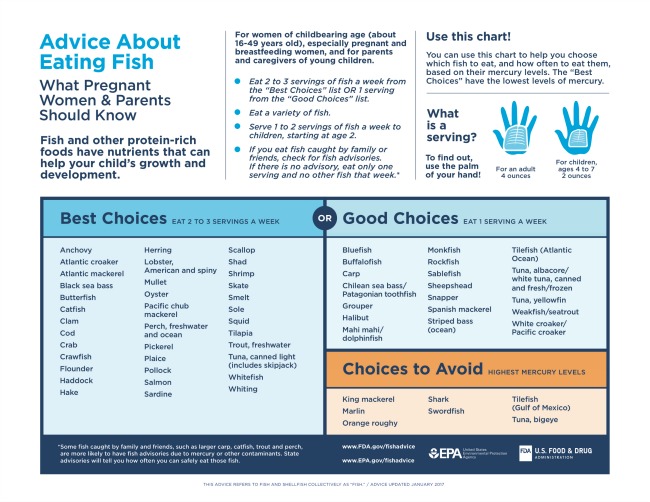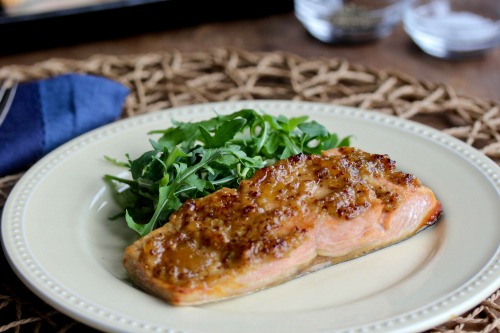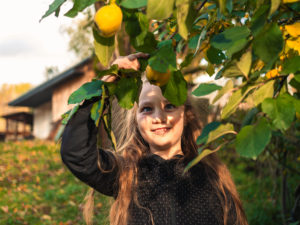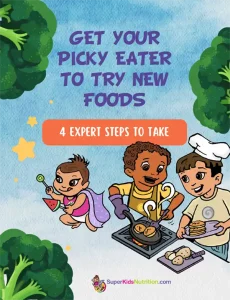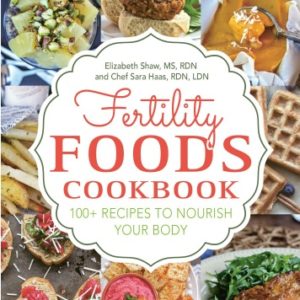
Nutrition and fertility can go hand in hand. Trying to conceive a child will be a part of most people’s/couple’s lives, so how can you make sure you’re maximizing your nutrition?
From an evolutionary perspective, it is the natural next step once you’ve found your partner. And for most, conceiving and rearing a child will be an incredibly amazing, joyous, fascinating, and yet stressful experience. There are going to be many bumps in the road ahead; sleepless nights, teething toddlers, crabby teenagers, expensive colleges… but we all know it will be worth it, and that’s the reason we do it.
However, what if there were bumps in the road before the road even started? You’ve found your partner; you’re both ready to change your life as you know it by having kids – you try to conceive, but twelve months of trying goes by and no success.
When is someone considered infertile and what can they do nutritionally to change this?
Twelve months of trying to conceive is the point at which couples are considered infertile (1). If this has happened to you or you’re currently experiencing it, you are not alone. Every occurrence of infertility is unique in its origin and type of treatment required. It will likely require numerous visits to your physician and possibly taking medications you’ve never even heard of. Dealing with everything that comes with infertility can be overwhelming, and at times you may feel you’re yo-yoing between hopeful and helpless.
If you’ve been feeling helpless in your infertility, there are measures you can take to help put you back in control of your helm and possibly improve your fertility status. Emerging research shows promising evidence that certain foods and dietary patterns are correlated with improved fertility (1,2).
We wanted to find out about the specifics on this timely and important topic. So, we sat down with two nutrition experts who specialize in pre-pregnancy nutrition, Registered Dietitians Elizabeth Shaw, MS, RDN, CLT, and Chef Sara Haas, RDN, LDN. They share their professional insights and personal experience with infertility, plus discuss their new yummy cookbook released this year, Fertility Foods Cookbook: 100+ Recipes to Nourish Your Body.
Both of you are so kind to share your experience with infertility in your book. As you know from your research and experience, there are certain foods and eating patterns that can help improve fertility status. When working with your obstetrician, did they talk about or recommend any nutrition changes?
ES: Unfortunately, no! There was no mention of nutrition or foods at all during our initial diagnosis. It wasn’t until I brought the questions to the table about certain supplements and foods did the discussion unravel.
SH: Same with me, no one mentioned anything about nutrition. I have to admit that I wasn’t surprised.
How often do you think referrals to RDs are recommended for women and couples experiencing infertility?
ES: Unfortunately again, not enough. I think unless there is an underlying condition like diabetes or PCOS, physicians are not referring out to RDs. More often than not I feel patients who are overweight are told to lose weight without much guidance, and not to mention those who are underweight and are told to just gain weight, without having any support for perhaps an underlying eating disorders.
SH: I agree with Liz. It’s not too often that RD’s are referred. I think there’s still a big educational piece missing here. In other words, we all (the health practitioners) have a lot of work to do. Hopefully, this book can be a good jumping off point.
How do RDs specifically aid clients through the process of fertility treatments or preparing for conception?
ES: RDs play a crucial role in this process through helping patients to understand the role nutrition can play in improving their condition. Sure, we know there isn’t a magic food that will get you pregnant overnight (trust me, I’ve tried!) but, in a condition that is so out of your control, what you can control and gain peace with is how you nourish and feel in your body. And that is what we hope that Fertility Foods Cookbook can provide patients, a sense of control over a situation that is so out of their control.
SH: It’s amazing how much better you feel when you feed your body with the right food. And when someone is struggling with infertility, they need to feel their best. Consuming the right foods is a perfect way to prime your body for conception and RD’s can help with that.
Typically we (RDs and health professionals) recommend low-fat dairy for the general public. However, for improving fertility, you state that full-fat dairy may be beneficial. Why? Are there any other recommendations that don’t apply to the general population?
ES: The dairy dilemma as I’ll refer to it is really the only major food group disparity amongst the general population who is striving to lead a healthy life! What research has shown is that males and females differ in the types of dairy needed to help with conception. Males, for instance, are recommended to consume low-fat dairy to assist with sperm concentration and progressive motility of sperm. On the other hand, females who struggle with ovulatory infertility have shown higher rates of conception when switching to full-fat dairy. When the fat is removed during processing of low-fat milk, it is hypothesized that the ratio of hormones naturally present in the milk is changed, leaving a mix of hormones that may not be ideal for promoting ovulation.
Based on your clinical expertise and experience, are there any dietary and lifestyle practices that you’ve seen to be successful in women and couples struggling with infertility that aren’t necessarily covered in the current research?
ES: I think anecdotal stories can really go a long way despite the lack of science-based research to back them up. With that said, I’ve seen patients go through multiple rounds of unsuccessful assisted reproductive technology cycles only to achieve conception when they least expected it (without any outside manipulation whatsoever!) When this happens, nine times out of 10 their response is, “literally, we stopped trying, and it happened!” As someone still on the other side of this journey, I find hope in these stories and know that sometimes, good old-fashioned hope and trust is something that can carry you through some of the challenging times!
SH: I’m proof of the “we stopped trying, and it just happened.” But, I also believe in fate and things happening for a reason. I really believe stress plays a huge role in fertility. When you start to relax, amazing changes happen in your body.
There is always so much buzz about pregnant women avoiding fish with mercury. Is this the same when it comes to women and couples trying to conceive?
ES: The same guidelines follow for fertility nutrition as pregnancy nutrition, and we recommend patients to follow the latest guidelines put out by the FDA and EPA.
https://www.fda.gov/downloads/Food/ResourcesForYou/Consumers/UCM536321.pdf
Based on the new research regarding the protective effect of selenium-binding mercury in selenium-rich ocean fish and reducing its potential for toxicity in the human body, do you think it’s safe for pregnant women to consume selenium-rich ocean fish without cause for concern?
ES: Based on the research I’ve seen, there’s still a need for further research surrounding the understanding of how selenium: mercury molar ratios would affect the current recommendations for fish consumption and prenatal concerns.
Should women buy ocean fish cautiously based on region to ensure high selenium content? And should they be concerned about other toxins such as PCBs and dioxins in fish?
ES: For the above two questions, I would state that women should follow the guidelines put out by the FDA and EPA currently. In the book, we recommend purchasing wild-caught salmon to ensure you are getting the most nutritious type of fish. Nutritionally speaking, wild caught salmon is more nutrient-dense, has a better nutrition profile, and, in the case of salmon, has less saturated fat and more zinc, iron, and potassium than many other fish. But, depending on your region, some farm-raised fish may actually be more sustainable. Thus, we advise clients to use the Monterey Bay Aquarium Seafood Watch resource that provides science-based recommendations on the best seafood choices based on your particular region.
What is your recommendation for women and couples who are struggling with infertility and want to cook at home to improve their diet, but are not able to cook for themselves more than 3-4 times per week?
ES: Trust us, we get it! We know you’re busy, especially if you’re juggling multiple doctors appointments on top of work during the week. That’s why we’ve armed you with over 100+ fertility fueling recipes in the book that can take anywhere from 5 minutes to 1 hour to prepare, meaning we’ve got you covered! And, we’ll show you how to store and freeze items throughout the book so you can enjoy multiple cook-once and eat-it-twice (or more) food dishes. And, if you have to eat out, that’s okay, too. Hopefully the knowledge you’ll gain in this book will help you make better decisions when it comes to dining out to fuel your body for conception. But, remember, part of this journey is to enjoy life and stress less, so if you want to enjoy a pizza and ice cream night out on occasion with your partner, do so with a smile on your face and no guilt, whatsoever!
SH: Time is indeed precious, but so is your health. I recommend EVERYONE cooks/prepares their meals at home because that way you control what’s in it. The smart way to cook is to make recipes that can be enjoyed for more than 1 meal. Stock your freezer and pantry so that you can whip something up easy and fast, but also nutritious. Here’s one of our tasty recipes:
Stone-Ground Mustard and Apricot Glazed Salmon
MAKES: 2 servings, 3 ounces each GLUTEN FREE
Fertility Focus: This is a great meal to increase those heart-healthy omega-3s! As Angela notes, omega-3s have been shown with PCOS to help with oocyte development and improve androgens and insulin.
Ingredients:
- 2, 4-ounce wild salmon fillets, with skin
- 1 tablespoon stone-ground mustard
- 2 teaspoons apricot preserves
- 1⁄4 teaspoon kosher salt
- Black pepper, freshly ground, to taste
Directions:
- Preheat the broiler and place the oven rack about 5 to 6 inches away from the heat source. Line a rimmed cookie sheet or broiler pan with foil and coat with nonstick cooking spray.
- In a small bowl, combine the mustard and apricot preserves.
- Place the salmon on the prepared pan, skin side down. Sprinkle with salt and pepper. Place in the oven and broil for 5 minutes. Remove and spread mustard mixture evenly over the top and cook an additional 5 to 6 minutes, or until internal temperature reaches 145°F.
- Storage: Cover and refrigerate in a sealed container for up to 3 days.
Kitchen Tip: Refer to the Monterey Bay Aquarium Seafood Watch to pick the most sustainable option.
Shopping Tip: Stone-ground mustard is also referred to as whole-grain mustard. You can find this in the condiment aisle. It is prepared using the whole mustard seed.
Nutrition Information:
- PER SERVING: Calories 200; Fat 8g (Sat 1.5g); Protein 26g; Carb 4g; Fiber 0g; Calcium 17mg; Iron 1.1mg; Sodium 380mg; Folate 29mcg ALLERGENS: Fish
Are there fertility food tips and tricks that did not make it into your book?
ES: Our goal was really to share everything we could with the audience (aka our new friends) who purchase the book. Thus, we really tried to include everything we could as well as the available research out there. With that said, there are already new studies emerging that aren’t reflected in the book. Hopefully, this means there will be more versions in the future!
What advice do you give to women to help them through the emotional roller coaster of infertility?
ES: First and foremost, remember you are not alone! This can be a very emotional roller coaster and at times it will feel very lonely. But, you aren’t alone! When you feel like throwing in the towel, reach out to your support network (that’s us, too, your #ttcfamily) and let us know what we can carry for you until your stress settles down and you see the HOPE again! I’ve got a community over at BumpstoBaby.com that has open arms for anyone looking for a private support group – Facebook community here!
SH: Find other people on the journey. They can be of great support. Feel all of the emotions and don’t let anyone convince you otherwise. It’s ok to be sad, mad, angry, happy, you have that right. Find healthy ways to manage your emotions and stress – try exercise, a walk outside in the fresh air, meditation or yoga.
Do you ladies see a sequel to your book in the future? Perhaps a pregnancy cookbook?
ES: One of the great things about working with Hatherleigh Publishing and our reviewer, Dr. Sonali Ruder, is that this book is actually the prequel to her amazing books, Natural Pregnancy Cookbook and Natural Baby Food! But, I do know our work here in this community is just getting started with the release of the book! Who knows what else is on the horizon, but we will definitely keep you posted!
SH: Why not! 🙂
Why should people struggling with fertility buy your book?
ES: Simply put, because struggling with infertility is hard enough and thinking about how to nourish your body shouldn’t be an added stressor in your life. As two RDN’s with a passion for food, good nutrition and who’ve most importantly walked in your shoes, we want to support you during this trying time. Through the Fertility Foods Cookbook, we hope your load gets a little lighter and we can help take the stress off one area of your life.
SH: Because we wrote it just for them. We know what it’s like on this journey and we wanted to “fill the gap” that was missing at the bookstore. We know how important nutrition is in your overall health and essentially, your fertility. Why not share this with a community that really needs our help?
Make sure to pick up the Fertility Foods Cookbook on Elizabeth’s website, BumpstoBabys.com and connect with the amazing community she’s built to help couples find strength through infertility. Connect with Sara on her website SaraHassRDN.com to get the Fertility Foods Cookbook and access to many more delicious RD approved recipes! Remember, you’re not only getting access to invaluable information when you connect with Elizabeth and Sara, but also the much-needed support for those struggling with infertility.
